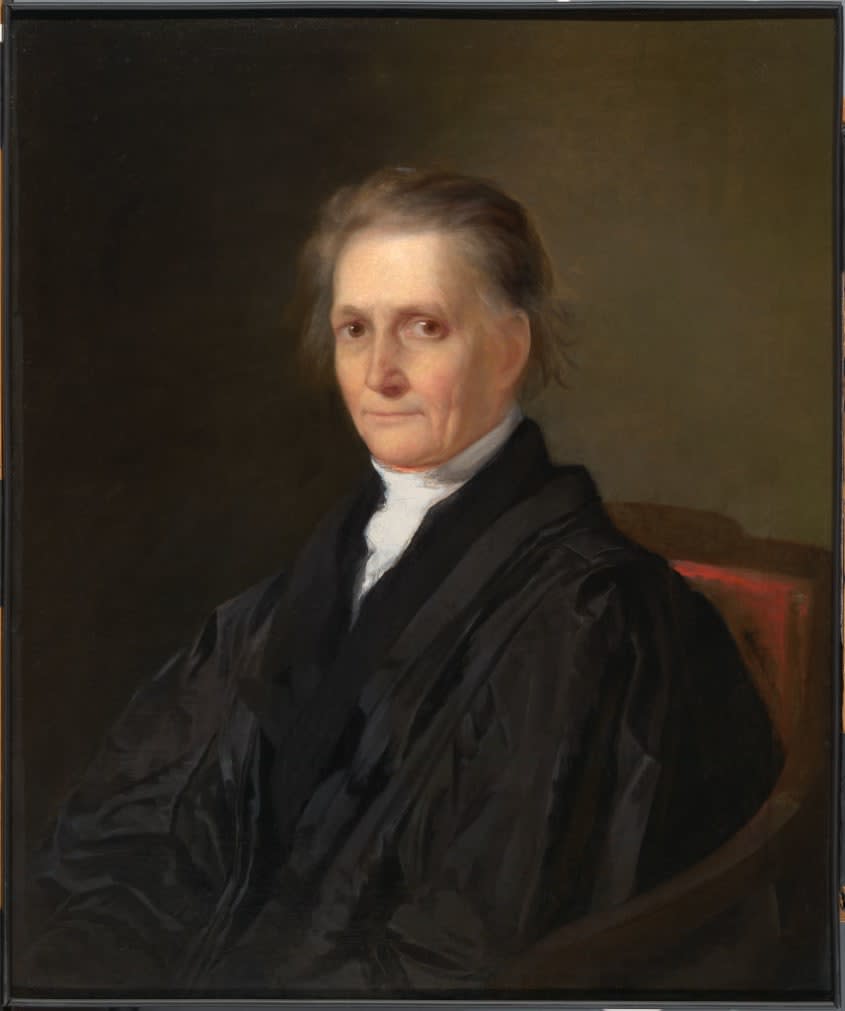Ted Cruz's example of a non-'controversial' Supreme Court nominee was a controversial slaveholder
- Oops!Something went wrong.Please try again later.
- Oops!Something went wrong.Please try again later.
Sen. Ted Cruz (R-Texas) began his opening statement at Monday's Supreme Court confirmation hearing for Judge Ketanji Brown Jackson by telling Jackson and the cameras that "Supreme Court confirmations weren't always controversial." In fact, he said, "Bushrod Washington, when nominated to the Supreme Court in 1798, was confirmed the very next day."
It is true that Washington, a favorite nephew of George Washington, was confirmed by voice vote one day after his nomination by President John Adams, The Washington Post reports. But "Washington was neither the first nor the last to be confirmed that quickly" — about 10 Supreme Court justices were confirmed the same day they were nominated — and "he was definitely controversial, largely because of his actions as an enslaver."

Heritage Art/Heritage Images/Getty Images
For one thing, Washington brought enslaved African Americans back to Mt. Vernon after he inherited the Washington estate in 1802, upon the death of Martha Washington, who had freed the remaining slaves. That wasn't overly controversial in the Senate itself, where more than half the 31 senators at the time were also slaveholders, the Post reports. But when he sold 54 of those enslaved people for $10,000 to pay off his debts, and they were marched in chains to Louisiana, newspapers called his actions "excessively revolting."
Washington also co-founded the American Colonization Society in 1812, working to send the growing ranks of free Black Americans to Africa, a place almost none of them had ever been. When abolitionists and Black people fought against this movement, Washington complained about "unworthy persons" speaking "with my negroes, and to impress upon their minds the belief that as the nephew of General Washington, or as president of the Colonization Society, or for other reasons, I could not hold them in bondage," the Post reports, citing a 1980 paper in the Supreme Court Historical Society.
"So that is who Cruz mentioned in his speech Monday," Gillian Brockell writes at the Post. "For all intents and purposes, it was a throwaway line meant only to introduce Cruz's real historical point: what had changed from those halcyon, uncontroversial days." But his explanation of what changed raised its own set of questions. Read more at The Washington Post.
You may also like
Putin quotes Jesus to justify invasion of Ukraine
Gen. David Petraeus explains how Ukraine keeps picking off Russian generals
Putin's invasion is hastening Russia's decline. Let's heed the warning.

